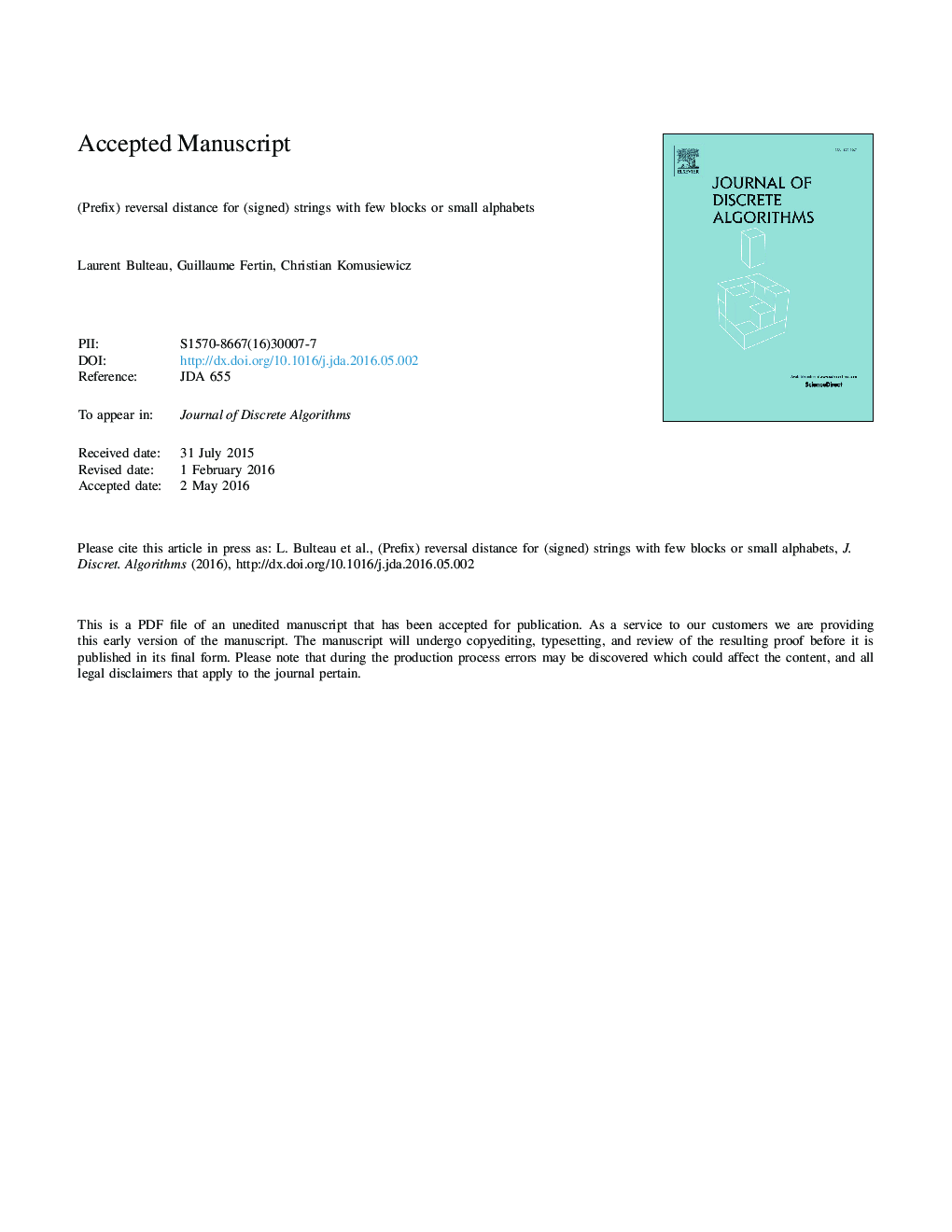| Article ID | Journal | Published Year | Pages | File Type |
|---|---|---|---|---|
| 6874771 | Journal of Discrete Algorithms | 2016 | 22 Pages |
Abstract
We study the String Reversal Distance problem, an extension of the well-known Sorting by Reversals problem. String Reversal Distance takes two strings S and T built on an alphabet Σ as input, and asks for a minimum number of reversals to obtain T from S. We consider four variants: String Reversal Distance, String Prefix Reversal Distance (a constrained version of the previous problem, in which any reversal must include the first letter of the string), and the signed variants of these problems, namely Signed String Reversal Distance and Signed String Prefix Reversal Distance. We study algorithmic properties of these four problems, in connection with two parameters of the input strings: the number of blocks they contain (a block being a maximal substring such that all letters in the substring are equal), and the alphabet size|Σ|. Concerning the number of blocks, we show that the four problems are fixed-parameter tractable (FPT) when the considered parameter is the maximum number of blocks among the two input strings. Concerning the alphabet size, we first show that String Reversal Distance and String Prefix Reversal Distance are NP-hard even if the input strings are built on a binary alphabet Σ={0,1}, each 0-block has length at most two and each 1-block has length one. We also show that Signed String Reversal Distance and Signed String Prefix Reversal Distance are NP-hard even if the input strings have only one letter. Finally, when |Σ|=O(1), we provide a singly-exponential algorithm that computes the exact distance between any pair of strings, for a large family of distances that we call well-formed, which includes the four distances we study here.
Keywords
Related Topics
Physical Sciences and Engineering
Computer Science
Computational Theory and Mathematics
Authors
Laurent Bulteau, Guillaume Fertin, Christian Komusiewicz,
